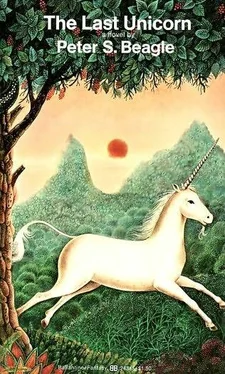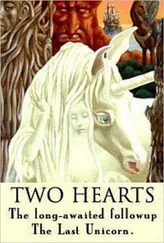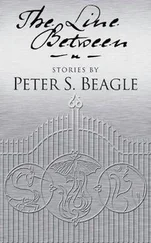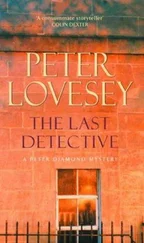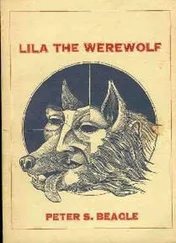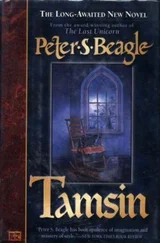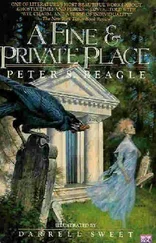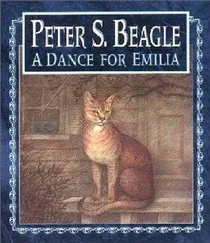"But that was what he wanted you for," Molly protested. "If he wanted real magic, he'd have kept the old magician, that Mabruk." Schmendrick raised his head and gave her a look that was almost amused. "I didn't mean it like that," she said. "Besides, it's only for a little while, until we find the way to the Red Bull that the cat told me about."
She lowered her voice to a whisper as she spoke this last, and both of them glanced quickly over at Prince Lír; but he was sitting on a stool in the corner, evidently writing another poem. "Gazelle," he murmured, tapping his pen against his lips. "Demoiselle, citadel, asphodel, philomel, parallel…" He chose 'farewell, and scribbled rapidly.
"We will never find the way," Schmendrick said very quietly. "Even if the cat told the truth, which I doubt, Haggard will make sure we never have time to investigate the skull and the clock. Why do you suppose he piles more work on you every day, if not to keep you from prowling and prying in the great hall? Why do you think he keeps me entertaining him with my carnival tricks? — why do you think he took me as his wizard in the first place? Molly, he knows, I'm sure of it! He knows what she is, though he doesn't quite believe it yet — but when he does, he'll know what to do. He knows. I see it in his face sometimes."
"The lift of longing, and the crash of loss," Prince Lír said. "The bitterness of tumpty-umpty-oss. Cross, boss, moss. Damn."
Schmendrick leaned across the table. "We can't stay here and wait for him to strike. The only hope we have is to escape at night — by sea, perhaps, if I can lay hold of a boat somewhere. The men-at-arms will look the other way, and the gate —"
"But the others!" she cried softly. "How can we leave, when she has come so far to find the other unicorns, and we know they are here?" Yet one small, tender, treacherous part of her was suddenly eager to be convinced of the quest's failure, and she knew it, and was angry at Schmendrick. "Well, but what about your magic?" she asked, "what about your own little search? Are you going to give that up too? Will she die in human shape, and you live forever? You might as well let the Bull have her then."
The magician sank back, his face gone as pale and crumpled as a washerwoman's fingers. "It doesn't really matter, one way or the other," he said, almost to himself. "She's no unicorn now, but a mortal woman — someone for that lout to sigh over and write poems about. Maybe Haggard won't find her out after all. She'll be his daughter, and he'll never know. That's funny." He put his soup aside untasted and leaned his head into his hands. "I couldn't change her back into a unicorn if we did find the others," he said. "There's no magic in me."
"Schmendrick —" she began; but at that moment he jumped to his feet and rushed out of the scullery, though she had not heard the king summon him. Prince Lír never looked up, but went on drumming meters and sampling rhymes. Molly hung a kettle over the fire for the sentries' tea.
"I've got it all but the final couplet," Lír said presently. "Do you want to hear it now, or would you rather wait?"
"Whichever you like," she said, so he read it then, but she never heard a word of it. Fortunately, the men-at-arms came in before he had finished reading, and he was too shy to ask her opinion in their presence. By the time they left he was working on something else, and it was very late when he bade her good night. Molly was sitting at the table, holding her motley cat.
The new poem was meant to be a sestina, and Prince Lír's head was jangling happily as he juggled the end words on his way up the stairs to his chamber. "I will leave the first one at her door," he thought, "and save the others until tomorrow." He was debating his original decision against signing his work, and playing with such pen names as "The Knight of the Shadows," and " Le Chevalier Mel-Aimé ," when he turned a corner and met the Lady Amalthea. She was coming down quickly in the dark, and when she saw him she made a strange, bleating sound and stood still, three steps above him.
She wore a robe that one of the king's men had stolen for her in Hagsgate. Her hair was down, and her feet were bare, and the sight of her on the stair sent such sorrow licking along Prince Lír's bones that he dropped his poems and his pretenses together and actually turned to run. But he was a hero in all ways, and he turned bravely back to face her, saying in a calm and courtly manner, "Give you good evening, my lady."
The Lady Amalthea stared at him through the gloom, putting out a hand, but drawing it back before she touched him. "Who are you?" she whispered. "Are you Rukh?"
"I'm Lír," he answered, suddenly frightened. "Don't you know me?" But she backed away, and it seemed to the prince that her steps were as flowing as an animal's, and that she even lowered her head in the way of a goat or a deer. He said, "I'm Lír."
"The old woman," said the Lady Amalthea. "The moon went out. Ah!" She shivered once, and then her eyes recognized him. But all her body was still wild and watchful, and she came no nearer to him.
"You were dreaming, my lady," he said, finding knightly speech again. "I would that I might know your dream."
"I have dreamed it before," she answered slowly. "I was in a cage, and there were others — beasts in cages, and an old woman. But I will not trouble you, my lord prince. I have dreamed it many times before."
She would have left him then, but he spoke to her in a voice that only heroes have, as many animals develop a certain call when they become mothers. "A dream that returns so often is like to be a messenger, come to warn you of the future or to remind you of things untimely forgotten. Say more of this, if you will, and I will try to riddle it for you."
Thereupon she halted, looking at him with her head a little turned, still with the air of some slim, furred creature peering out of a thicket. But her eyes held a human look of loss, as though she had missed something she needed, or suddenly realized that she had never had it. If he had even blinked, she would have been gone; but he did not blink, and he held her, as he had learned to hold griffins and chimeras motionless with his steady gaze. Her bare feet wounded him deeper than any tusk or riving talon ever had, but he was a true hero.
The Lady Amalthea said, "In the dream there are black, barred wagons, and beasts that are and are not, and a winged being that clangs like metal in the moonlight. The tall man has green eyes and bloody hands."
"The tall man must be your uncle, the magician," Prince Lír mused. "That part's clear enough, anyway, and the bloody hands don't surprise me. I never cared much for his looks, if you'll pardon my saying so. Is that all the dream?"
"I cannot tell you all of it," she said. "It is never finished." Fear came back to her eyes like a great stone falling into a pool: all was clouded and swirling, and quick shadows were rushing everywhere. She said, "I am running away from a good place where I was safe, and the night is burning around me. But it is day too, and I am walking under beech trees in the warm, sour rain, and there are butterflies, and a honey sound, and dappled roads, and towns like fishbones, and the flying thing is killing the old woman. I am running and running into the freezing fire, however I turn, and my legs are the legs of a beast —"
"Lady," Prince Lír broke in, "my lady, by your leave, no more." Her dream was darkening into shape between them, and suddenly he did not want to know what it meant. "No more," he said.
"But I must go on," said the Lady Amalthea, "for it is never finished. Even when I wake, I cannot tell what is real, and what I am dreaming as I move and speak and eat my dinner. I remember what cannot have happened, and forget something that is happening to me now. People look at me as though I should know them, and I do know them in the dream, and always the fire draws nearer, though I am awake —"
Читать дальше
